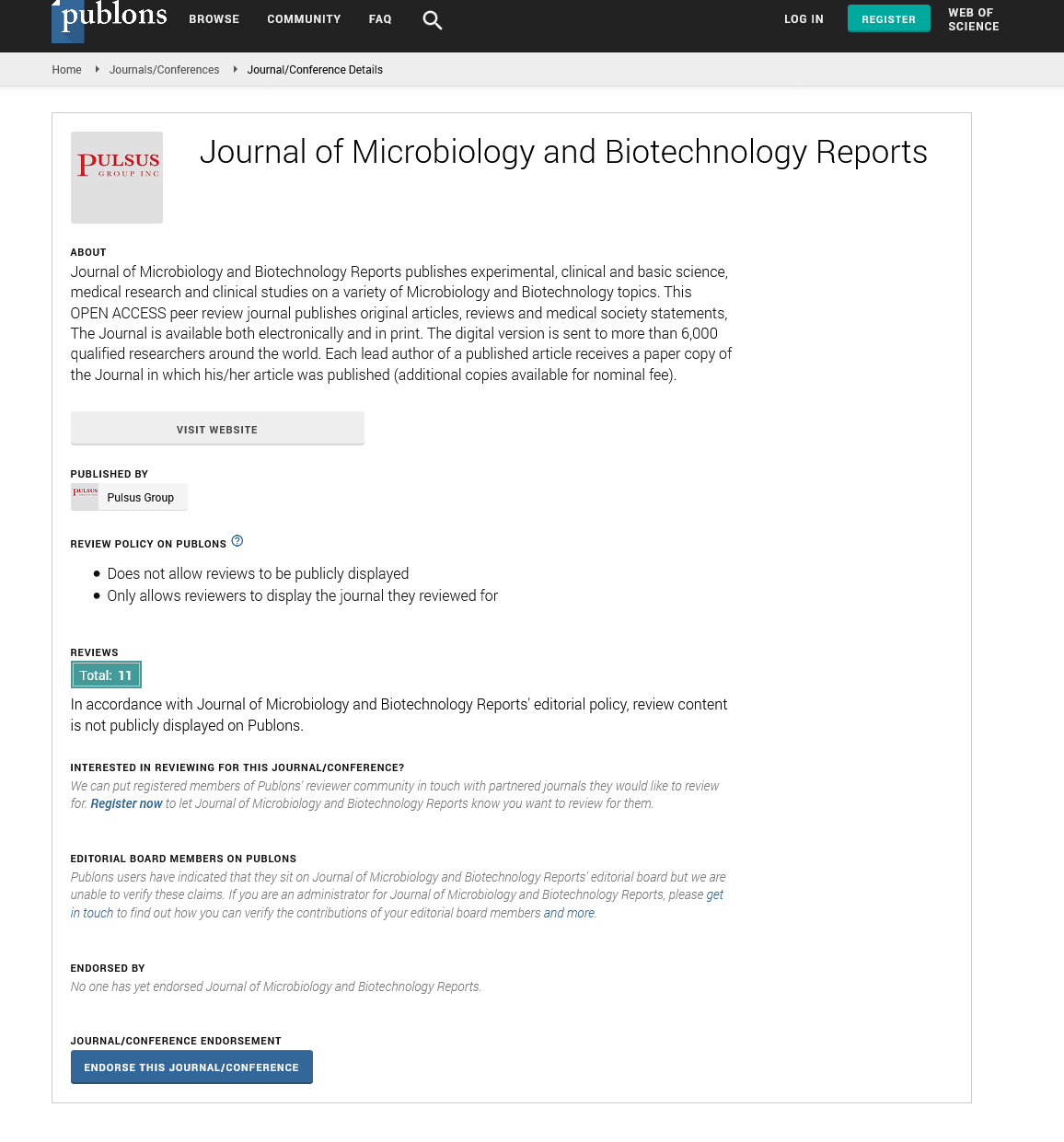
Sign up for email alert when new content gets added: Sign up
Biosynthesized ñ-MnO2-based polyaniline binary composite as efficient bioanode catalyst for high-performance microbial fuel cell
8th World Biotechnology Congress
October 05, 2021 | Webinar
Yilkal Dessie
Adama Science and Technology University, Ethiopia
ScientificTracks Abstracts: Microbiology and Biotechnology Reports
Abstract :
Microbial fuel cell (MFC) has novel technological advance in the simultaneous power generation and wastewater treatment applications. In this study, the low-cost biosynthesized α-MnO2 nanoparticles (NPs) encapsulated with conducting polyaniline (PANI) matrix to form α-MnO2/PANI hybrid Nano composite was fabricated by in situ polymerization method. The prepared material was characterized through UV-Vis spectroscopy, XRD, FTIR, TGA-DTA, DSC, SEM, cyclic voltammetry, and impedance spectroscopy. MFC performance study was done by using an external resistance in the range of 100 Ω-100 kΩ. The continuous test on bare pencil graphite electrode (PGE), α-MnO2/PGE, PANI/PGE, and α-MnO2/PANI/PGE were evaluated in glucose-fed-Escherichia coli based MFC. It was found that α-MnO2/PANI/PGE produces a maximum power and current densities of 426.26 ± 38.89 mW m-2 and 2485.51 ± 397.31 mA m-2, respectively. This was 6.5 and 5.7-fold higher in power and current densities than unmodified PGE. The maximum chemical oxygen demand (COD) produced by hybrid composite modified anode during closed circuit voltage or with external resistance (CCV) and open circuit voltage (OCV) (circuit without connecting external resistance) measurements were found to be 88.19% and 92.27%, respectively. A maximum of 650.61 ± 10.11 mV OCV was obtained by α-MnO2/PANI/PGE while 222.36 ± 8.16 mV of OCV was generated by PGE.
Biography :
Yilkal Dessie received his BSc and MSc degrees in chemistry and physical chemistry from Ambo University (Ambo, Ethiopia) and Addis Ababa University (Addis Ababa, Ethiopia) in 2010 and 2012, respectively. After six years of working as a lecturer and researcher in Adama Science and Technology University (Adama, Ethiopia). He has published nearly 13 peer reviewed journal articles. He is currently a doctoral fellow at Adama Science and Technology University (Adama, Ethiopia). His research interests focus on nanocomposite materials for energy conversion and wastewater remediation using bio electrochemical system. His current research activity involves mostly work on energy and environment.




